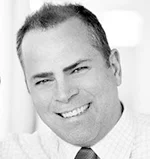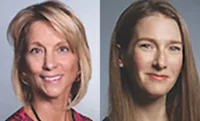 Thomas Graham Thomas Graham |
If ever healthcare needed intensive care, it’s now.
Trust in authoritative public health voices is on the decline and under attack. Miscommunication, misinformation and, in some cases, flat-out misdirection has an anxious public seeking answers to complex and deeply personal questions.
Meanwhile, elected leaders find themselves backtracking on public health guidance so frequently the recommendations more resemble a patchwork of suggestions, further fueling a partisan media hum raising further doubt.
Our industry, comprised of those who help craft, communicate and shape public communications around health issues, should take note and consider its implications.
Now is not the time to lose heart. Instead, we must embolden to be more proactive with our clients, with policymakers and providers to guide their strategy and influence engagements.
Throughout history, we have seen far too many entrepreneurs—some starry-eyed innocents, but many calloused fraudsters—peddle useless, untested potions and cures to a gullible American public. Unfortunately, it wasn’t until the passage of the 1906 Pure Food and Drug Act and the eventual creation of the U.S. Food and Drug Administration that the national government first intervened in a meaningful way to interrupt the nonstop American carnival of false cures and hoax remedies.
| This article is featured in O'Dwyer's Oct. '21 Healthcare & Medical PR Magazine (view PDF version) |
Many of today’s most cautious purveyors of foods and medicines had darker origins in the time before the FDA. Dr. John Kellogg, founder of the vast food empire that still carries his surname, proclaimed without evidence that his flaked cereals were a “health cure” for some “ailments” and also shamelessly hustled any number of other useless palliatives to the American public through newspaper ads and lectures.
Coca-Cola was once quite proud in its early days of the cocaine it included in its understandably quite popular “tonics.”
Today, equally zealous health hucksters have used the addictive power of social media to push foolish, often dangerous “alternatives” to life-saving vaccines, leveraging America’s political divide to get additional bounce and cover. This tragic trend is being further catalyzed by the fading ranks of professional journalists and independent publishers that can no longer afford to compete to properly investigate and expose false claims of disease cure and prevention.
In our own day of panic and pandemic, The Department of Justice has become more aggressive in chasing down fraudsters who are exploiting vaccine scares with fraud schemes. Investigations of fraudulent claims of effectiveness of Ivermectin for COVID protection, for example, are also finally underway.
However, promoters of unproven health formulations still easily navigate through FDA loopholes to create a multi-billion-dollar industry in unregulated potions and supplements that are presented not as “cures” for anything, but slyly advertised as “foodstuffs” and “nutraceuticals,” natural substances believed to have imagined but unproven health benefits. The FDA can’t even examine the manufacturing facilities of these products unless evidence is independently brought to them of harm caused.
I’m not advocating that additional regulatory power be granted to the FDA. Instead, I believe we should invest in supporting independent truth-telling communications channels that can help us survive in this vast “alternative care” universe. We should also welcome the scrutiny that challenges our own work as a critical role in the marketplace of ideas.
The oldest of our independent truth-telling institutions are, of course, libraries. Wikipedia, to the surprise of many, has emerged as a powerful and mostly unbiased communal source of reliable factual information, although it too has its challenges along the political spectrum.
STAT, the independent health-oriented digital-only news service launched in 2015, has also made great strides—and seems to have retained solvency—in investigating medical developments and independently monitoring healthcare marketeers for fraud and deception. In my estimation, our industry could use more committed outlets like STAT. The independent ProPublica journalism co-op has also won public notice for its pursuit of healthcare fraud and agency malfeasance.
Other institutions, such as the Consumer Reports organization, based in Yonkers, New York, organized as a 501(c)(3) charity with 50 testing labs, are proactive and may be have a role to create a nonpartisan “Medical Consumer Reports” that would operate like the existing Consumer Reports organization with funded laboratories but focus exclusively on claims of the thousands of unregulated substances claimed as “healthy” yet lacking any responsible form of investigation and documentation.
Having financially interested tech giants like Facebook, Google and Twitter serve as the arbiter of truth-in-science is a dangerous, freedoms-encroaching path that I am not convinced serves our national interests well, nor do I believe it serves our health interests.
Effective health care communication is critical to public health, as are effective communication’s professionals. In these times of misinformation, our responsibility is to the public’s health and well-being—bringing clarity, supporting accuracy and instilling earned public confidence.
Let’s see if we can encourage and create more partners and advocates in the effort to provide the disclosure, communications and protections to keep Americans safe.
***
Thomas Graham is Founder and President of Crosswind Media and Public Relations, based in Austin, Texas.


 Lo Isidro, senior director at Real Chemistry with more than a decade of strategic communications and PA experience, has joined Narrative Strategies.
Lo Isidro, senior director at Real Chemistry with more than a decade of strategic communications and PA experience, has joined Narrative Strategies. Nelson Fernandez, former North American chair of APCO Worldwide and managing director of Burson-Marsteller, has joined Volunteers in Medicine Berkshires as director of communications and PA.
Nelson Fernandez, former North American chair of APCO Worldwide and managing director of Burson-Marsteller, has joined Volunteers in Medicine Berkshires as director of communications and PA. Lilit Bargar, who was most recently an EVP in the healthcare practice at Weber Shandwick, comes on board at GCI Health as EVP, corporate practice lead.
Lilit Bargar, who was most recently an EVP in the healthcare practice at Weber Shandwick, comes on board at GCI Health as EVP, corporate practice lead.
 Five ways that successful thought leaders are made.
Five ways that successful thought leaders are made.


 Have a comment? Send it to
Have a comment? Send it to 
No comments have been submitted for this story yet.